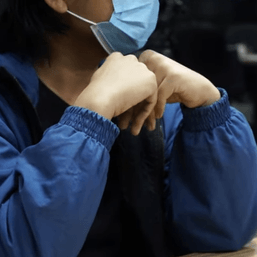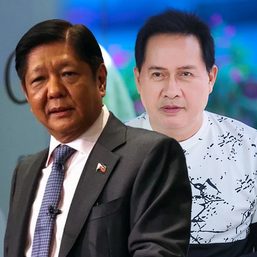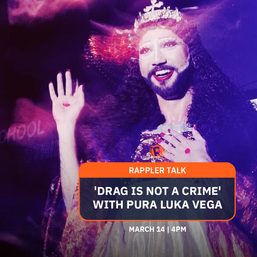SUMMARY
This is AI generated summarization, which may have errors. For context, always refer to the full article.
It’s one of the least noticeable movements in government, but a vacancy in the Supreme Court is a big development, and right now President Rodrigo Duterte has a new short list from which he will pick his 11th appointee to the High Court.
The seat of Associate Justice Jose Reyes Jr became vacant upon retirement on September 18. All in all, Reyes’ replacement would be Duterte’s 15th appointment, but four of them also retired within his term.
The Judicial and Bar Council (JBC) submitted a list of 7 names for Duterte to choose from – the usual names of Court of Appeals (CA) Justices Ramon Cruz, Japar Dimaampao, Jhosep Lopez, Eduardo Peralta, Ricardo Rosario, Maria Filomena Singh, and Court Administrator Midas Marquez.
Duterte has 90 days from September 18 to fill that seat, as the President packs a Supreme Court facing a crossroad in history.
By virtue of the Supreme Court decision in JBC vs De Castro that lifted midnight appointment bans in the judiciary, Duterte will also get to pick – if he wants to – the replacements of Chief Justice Diosdado Peralta (retiring May 27, 2022), Senior Associate Justice Estela Perlas Bernabe (retiring May 15, 2022), Associate Justices Rosmari Carandang (retiring January 9, 2022), and Edgardo delos Santos (retiring June 12, 2022).
When he steps down in 2022, Duterte’s appointees will take up 13 of the 15 seats, the only two non-Duterte appointee being the loud dissenters Associate Justices Marvic Leonen (retiring December 29, 2032) and Benjamin Caguioa (retiring September 26, 2029), barring of course resignation, impeachment, or quo warranto. (READ: During pandemic, Supreme Court favors Duterte twice and makes others wait)
Court appointments are watched to ensure that the Supreme Court doesn’t revert back to the Ferdinand Marcos Court, which was accused of being complicit to human rights violations. For starters, it was the Supreme Court that upheld the hastily passed 1973 Constitution which governed the dictatorship.
The human rights problems of the Marcos dictatorship are gradually being seen now in the Duterte administration – and they are reaching the Supreme Court one case at a time.
There were several petitions filed for the relief of red-tagged activists, petitions challenging the entire legality of Duterte’s war on drugs, and most recently the anti-terror law, which former senior justice Antonio Carpio called a law that would put the Philippines “permanently under a situation worse than martial law.”
But all these petitioners are facing Solicitor General Jose Calida, who has overwhelmingly won most cases in favor of Duterte in the current Supreme Court. (READ: Who voted for Duterte in the Supreme Court?)
Throwback
One of the lawyers at the forefront of the legal battle against Marcos’ Martial Law was former senator Jose W. Diokno, who blazed the trail for creative petitions to fight for human rights.
“I don’t think [that the way my father would have described the present Supreme Court] would be any different from the way he described the Supreme Court in his time,” said Chel Diokno, also a human rights lawyer, at the online launch of the elder Diokno’s book collection of Model Pleadings on Wednesday, September 23.
In a petition for the writ of habeas corpus for redemptorist priest Rudy Romano, who was abducted and detained in 1985, Jose W. Diokno told the Supreme Court that it has “tremendous moral powers it has yet to exercise.”
“Perhaps it is unfair to ask so much heroism from the Court. But these are abnormal times that demand more than normal behavior,” the older Diokno wrote. He lost that petition – in a case that Chel Diokno said “highlighted the inadequacy of habeas corpus as a viable remedy.”
Fast forward to the present time, even with the added remedies of writs of amparo and habeas data, human rights defenders have also been losing these petitions, including Negros activist Zara Alvarez who was killed before the Supreme Court could resolve her appeal of a lost amparo petition.
Most of the losses have to do with the technical application of the rules.
“In a lot of human rights cases where we don’t prevail, the reasons usually advanced to the courts are technicalities,” said Diokno.
Diokno added that he was reminded of another Martial Law case, in Galman vs Sandiganbayan, where the decision quoted former justice Vicente Abad Santos: “In the past few years, the judiciary was under heavy attack by an extremely powerful executive. During this state of judicial siege, lawyers both in and outside the judiciary perceptively surrendered to the animus of technicality. In the end, morality was overwhelmed by technicality, so that the latter emerged ugly and naked in its true manifestation.” (READ: Still no schedule for SC oral arguments on anti-terror law)
All have a stake
In this current battle for civil liberties, former supreme court spokesperson Ted Te said that the judiciary is not the only one responsible.
“Everyone needs to have a stake, and also to take some accountability for the way we do things,” Te said in the online book launch.
This would fall on the lawyers who litigate before both the lower courts and the Supreme Court – some petitions becoming more creative to find a way to hold the Duterte government to account.
Recently, there were petitions for mandamus to compel the Duterte government to disclose the President’s state of health, and to implement coronavirus mass testing. Both were denied outright without requiring comment from the administration.
Diokno said public interest cases such as these require a crucial judgment call on the part of the lawyer – to settle for the issue not to be decided by the Court at all, or risk the Court shutting down the debate and upholding the executive’s decisions.
“When you’re litigating a case like that, that is really controversial and involves public interest, you cannot escape looking at possibilities and deciding how to move forward without at the same time sacrificing the worst that could happen,” said Diokno.
But even as lawyers contribute by litigating, Diokno echoed his father in saying that ultimately, the change will come “from the top.”
“There has to be a strong will not just from the judiciary but from the entire government to take a look at our justice system and really strengthen it,” said Diokno.
For the Supreme Court at least, that will fall on the current crop of justices, many of them appointed so young that they will serve and decide crucial decisions past this presidency. – Rappler.com
Add a comment
How does this make you feel?





There are no comments yet. Add your comment to start the conversation.